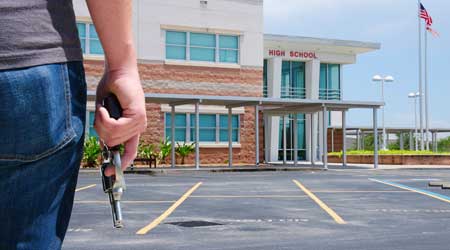
Closed, Slowly Reopening Facilities Offer New Opportunities for Efficiency
June 15, 2020
Institutional and commercial facilities have closed or limited their operations in an effort to prevent the spread of the coronavirus. While these drastic measures have presented managers with potential problems, such as the condition of water sitting in unused or underused plumbing systems, the situation also can offer managers opportunities for savings.
Now is an excellent time to identify operational efficiencies to lower energy use in the building, address deferred maintenance, and reduce operating expenses, according to the Urban Land Institute.
With few if any occupants, and thus fewer maintenance requests to address, staff might be able to finally implement operational improvements and deferred maintenance projects on building systems, and they can do so during the day without interrupting office workers. If no one is in the building most of the day, these simple steps can make a significant impact:
HVAC. Operate the building automation system on a weekend or holiday schedule with reduced hours, delayed startup, lower setpoints, and wider temperature dead-bands while maintaining appropriate ventilation and air quality.
Lighting. Turn off the lights in tenant spaces and common areas.
Plug loads. Turn off and unplug appliances like televisions, monitors, printers, and kitchen equipment.
For commercial buildings with some tenants returning to space, it is important to engage and communicate with them to optimize building operations:
• Learn their revised occupancy strategy and schedules to right-size building services by zone or by floor to match this new level of activity.
• Discuss reduction in use of dedicated tenant HVAC units as appropriate.
• Encourage tenants to turn off lights and unplug equipment when not using the space.
As building teams implement energy efficiency activities, it is important to consider the following nuances:
Leases. Make sure operators are allowed to implement these energy reduction activities, and get tenant approval in advance if necessary.
Energy contracts. Some buildings have long-term contract agreements with utilities to pay for a minimum amount of energy even if they are not using it. While it still makes sense to take action on energy efficiency now, the minimum energy requirement in a long-term energy contract may hurt the return on investment of an energy-saving investment.
Finally, do not shut everything off. Be sure to run minimal HVAC and ventilation to keep mold out, and to ensure all mechanical systems are in working order in preparation for tenants’ return.
Dan Hounsell is editor-in-chief of Facility Maintenance Decisions.
Next
Read next on FacilitiesNet












